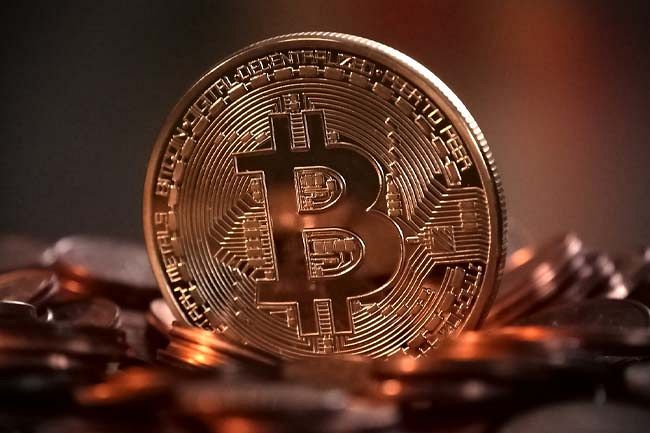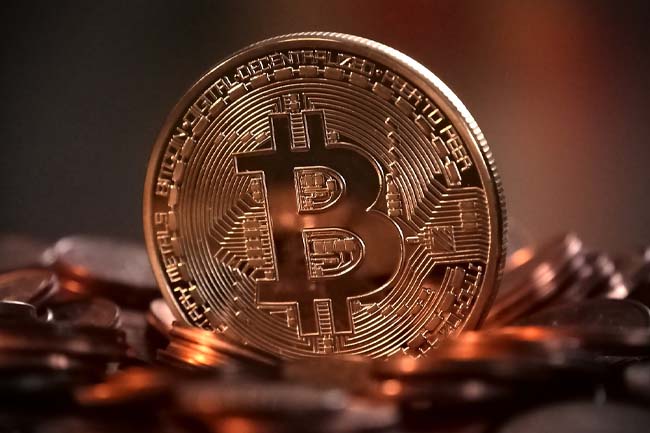In amongst all the hysteria of price volatility, anonymity and the value of bitcoin, the genius of bitcoin has been overlooked. Here are some of the basic facts.
There has been a lot written about bitcoin in the mainstream media lately. I would only need two fingers to count the sensible articles — the rest are all hysterical and misinformed. My main objective is to shed some light on this complex subject and to perhaps show you that all the “bad stuff” you have been reading about bitcoin is not as it would seem to be.
For those of you who don’t know, there will only ever be 21 million bitcoin in existence and it is assumed that about 4 million are lost. So that leaves only 18 million tokens potentially in circulation. Bitcoin is created by computers solving complex cryptographic calculations (elliptical curve mathematics). The computers that solve these complex calculations (known as miners) are rewarded with bitcoin.
Initially, the reward was 50 bitcoins. Every four years, the reward is halved and is thus known as Bitcoin Halving. The last halving was on 11 May 2020 and the current reward is 6.25 bitcoin. All the bitcoin is expected to be mined by the year 2140. The reduction of the rewards also makes bitcoin deflationary.
“Blockchain” and “decentralised” are two terms you would have heard repeatedly whenever cryptocurrencies are discussed. Think of a “block” like a spreadsheet containing a list of transactions and once the spreadsheet is full, it is added to the previous spreadsheet. Many of these spreadsheets link together to form a “chain”, hence the term blockchain. These records are kept on millions of computers all over the world known as nodes and the software confirms that each copy on each computer is exactly the same. This is what makes bitcoin decentralised.
The miners who were mentioned previously keep the network safe by repeatedly verifying the transactions whilst trying to solve the complex equations. By design, this has a number of consequences. Millions of copies of the blockchain are stored on millions of computers all over the world with “miners” solving complex equations and verifying transactions. This is why bitcoin can’t be hacked and that’s why I refer to bitcoin as the “truth serum”. Bitcoin has no head office and no CEO. Bitcoin is fully decentralised. This is why bitcoin can’t be shut down.
Much has been written about the amount of power used to mine bitcoin and protect the system. If you think of bitcoin mining as a business (which it is), then to be successful, your income must be greater than your expenses. In the last 12 months, more and more large-scale “mining” operations, known as mining farms, have been relocating to areas and countries with cheap electricity.
This cheap electricity is renewable energy — predominantly solar and hydroelectric. I can't remember any bank moving their servers close to any solar farms or hydroelectric schemes, or remember hearing anyone complain about how much power the bank and credit card servers use.
Why have I bothered with all this technical mumbo-jumbo anyway? Shouldn’t I be writing about price volatility, Ponzi schemes, tulip mania, anonymity and scams? You see, this is a big part of the problem with all the hysteria. The pure genius of bitcoin is overlooked for cheap thrills and clickbait titillation. We respond completely differently to fear compared to most other emotions.
So, let me first ask you this question: What is a cryptocurrency anyway? Before I answer this, let me just say that I came into the crypto space in my 50s, so I look at this with a completely different perspective to someone in their 20s or 30s. I also come from a non-computing background; I have not studied computer science and I can’t program my way out of a wet paper bag.
I actually entered the crypto space by being introduced to a different cryptocurrency relating to decentralised video distribution. Now, back to the question of what is a cryptocurrency. To put it simply, a cryptocurrency is a project which aims to solve a problem. The cryptocurrency itself is the tokens you hold to support or be part of that project. That’s it. If the project has value, then your tokens will be valuable. If not, they will be worthless.
What problem does bitcoin solve exactly? Bitcoin solves the problem of electronic money. But don’t we already have a solution for this in the form of banks, credit cards and EFT? We all know how well banks behave when they think that no one is watching, don’t we? We know that we can be denied the ability to have an account. Banks can freeze accounts and we can have money deducted from our accounts without our permission. In extreme cases, we can have our accounts closed.
This does not exist with bitcoin. All you need is a smartphone with a bitcoin wallet, access to the internet and you’re away. Holding bitcoin is often referred to as being your own bank. Bitcoin is in fact “trustless”. This is where the miners come into it by verifying all the transactions.
There is another major advantage to bitcoin. You don’t have a buy a full bitcoin. I don’t know anyone that can afford a full bitcoin at current prices (around $60,000). You can buy as little as $10 worth. In fact, many are known to buy a fixed amount of anywhere between $10 to $100 per pay period, in order to accumulate bitcoin. Can you do that with Warren Buffet's Berkshire Hathaway, currently valued at over US$480,000 (AU$664,286) per share?
This all doesn’t sound very sinister or that there is some great big scam in place. Especially if all the transactions are verified multiple times before being accepted as fact, then written to the blockchain which can then never be altered. The blockchain is publicly available and anyone can access this and interrogate each and every transaction if they wish. Imagine if the banks had an open book, publicly available ledger, published in real-time and that all we needed to view the transactions was access to the internet.
The Bitcoin blockchain is just that. Lyn Alden has written an excellent article addressing the Ponzi scheme misnomer.
On the face of it, this all looks to be ideal. I don’t need to trust anyone to ensure my bitcoin gets to where I am sending it, transactions can’t be altered and all the transactions are publicly available. Owning bitcoin is not without its challenges and dare I say it, owning bitcoin is not for the faint of heart.
Yes, you can lose your bitcoin. Yes, you can be scammed and yes, you can be hacked. But not the bitcoin network. To avoid this, your cryptocurrency should ideally be stored on a “cold wallet”, which is usually a USB type of device that is not connected to the internet unless you connect it.
But owning a cold wallet is not without its challenges either, as these are protected with a 24-word mnemonic phrase known as your “keys”. You can’t keep this phrase on an electronic device because if someone gets hold of it, then they have complete access to your wallet. It’s like leaving a copy of your bank account details and passwords online for anyone to find. Where do you keep a copy of these handwritten words? How many copies do you make? If all this isn’t stressful enough, if you send your bitcoin to the wrong address, you will never get it back.
Unfortunately, what all this means, is that if you want to learn about bitcoin and perhaps even own some bitcoin, you will need to educate yourself and this could take many hours of reading and watching YouTube videos. I can highly recommend Andreas Antonopoulos and a book called The Bitcoin Standard as a starting point. Beware the charlatans online, though — you have been warned.
Bitcoin is not a Ponzi scheme and is no more volatile than Apple shares. Bitcoin is, however, immutable and most importantly, bitcoin is unstoppable.
 This work is licensed under a Creative Commons Attribution-NonCommercial-NoDerivs 3.0 Australia License
This work is licensed under a Creative Commons Attribution-NonCommercial-NoDerivs 3.0 Australia License
Support independent journalism Subscribe to IA.













